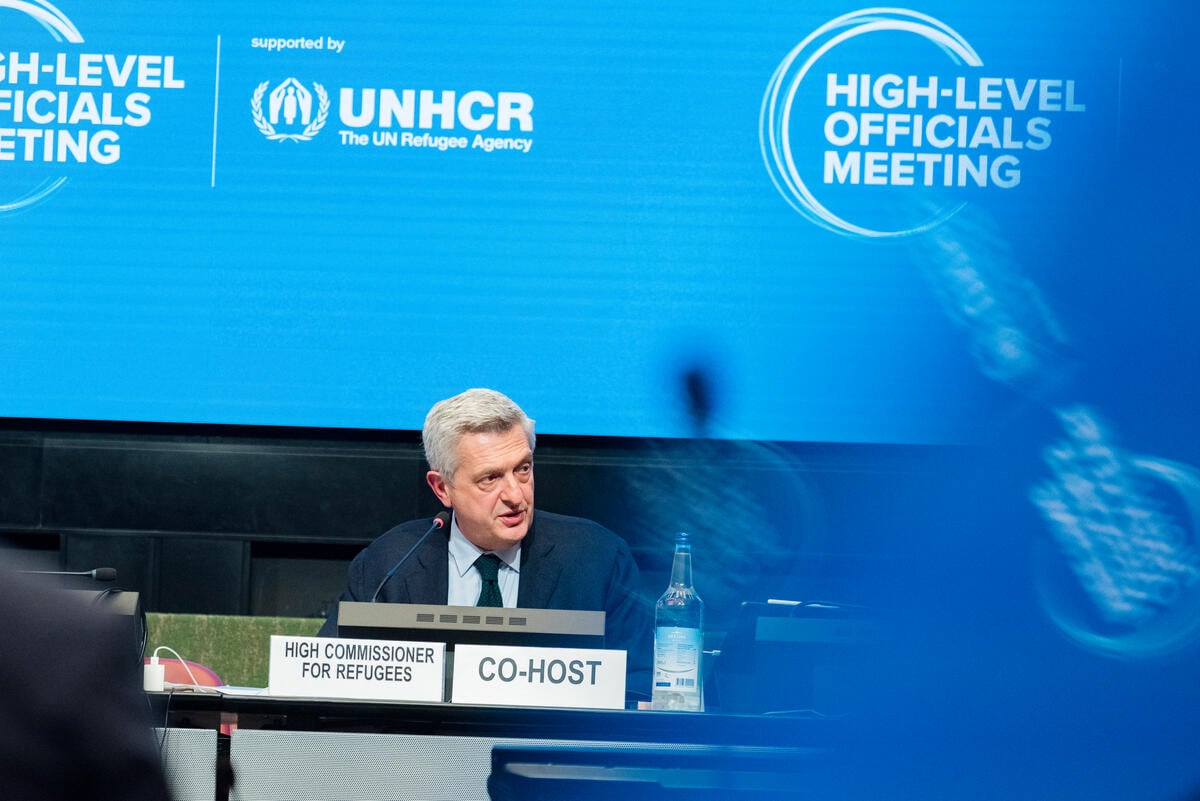UNHCR warns against internet resettlement scams
UNHCR warns against internet resettlement scams

GENEVA, November 15 (UNHCR) - Unscrupulous individuals are using elaborate internet scams to prey on vulnerable people by offering them resettlement in exchange for money, the UN refugee agency warned on Tuesday.
"Bogus organizations, claiming affiliation to UNHCR, are using internet chat groups, dating websites and fake websites to promise resettlement and employment opportunities in Europe and North America for a fee," UNHCR spokeswoman Jennifer Pagonis told reporters in Geneva. "These are scams," she said.
In a typical internet resettlement fraud, the cyber-conmen infiltrate chat rooms, special interest groups and dating websites, looking for men and women in African, Latin American and Asian countries who may be interested in emigrating to an industrialized country. They then try to make their potential victims believe a member of the opposite sex is interested in them and can help them find work in the country of their choice. The fraudsters write to their potential victims from temporary e-mail accounts and lure them into visiting phony websites which purport to belong to UNHCR or other international organizations.
These fake websites provide deceptive information about resettlement and employment programmes for refugees. The unsuspecting victim is encouraged by their internet "friend" to apply to these sham resettlement programmes by paying an "administrative fee" which ranges from around US$100 to as much as US$1,000. People are sometimes offered a "discount" if they can persuade between five and 15 other people to join the programme.
Once the victim has been cheated out of their money, the conmen plunge into the depths of the internet, only to resurface later under another guise, ready to ensnare others.
There is always a risk of fraud in migration programmes. Governments have long recognized that people wanting to migrate will resort to exploiting vulnerabilities in admission procedures and systems. At the same time, desperate refugees can fall victim to fraudulent schemes offering them a quick-fix solution to their plight.
UNHCR has been combatting these and other forms of fraud for some time. A Resettlement Anti-Fraud Plan of Action was introduced in June 2004. "It is very important to alert potential victims about such swindles," said Hiromitsu Mori, who coordinates efforts to prevent and combat fraud in the resettlement process. "People should also know that UNHCR never charges refugees for resettlement or any other services."
UNHCR's resettlement policy is part of the agency's refugee protection mandate. Its aim is to provide international protection and meet the needs of refugees whose life, liberty, health, safety or other fundamental human rights are at risk. It is also designed to be a durable solution to the plight of refugees - together with other solutions such as voluntary return to their country of origin when conditions permit or local integration in the host country. It is also a means by which one country can help alleviate the pressures on another facing a large refugee influx.
However, despite efforts to expand the number of places available, resettlement is only available to a relatively small proportion of the world's refugees - usually the most vulnerable. Millions of other people would love to benefit from it - including other refugees as well as migrants seeking to move for economic reasons - and this has created a market for unscrupulous internet operators seeking to exploit their aspirations.
"What these fraudsters are doing is effectively preying on some of the world's most vulnerable people," said Wil Eikelboom, from the UNHCR Legal Affairs Section. "That is why we are so concerned about these scams. If we don't root them out immediately, this could become an even bigger problem."
That will not be easy, however. As well as being an ever-growing source of quick and useful information, the internet provides many opportunities for criminals to take advantage of the unwary, while remaining anonymous. "Almost as soon as we manage to get one of these phony websites closed, another one pops up elsewhere," Eikelboom said.
UNHCR says it will continue to alert potential victims of resettlement fraud by providing them with timely and accurate information, as well as by monitoring trends or patterns of fraud around the globe. UNHCR also reserves the right to take legal action against individuals or organizations that pretend to act on its behalf.
"Just to be clear, UNHCR never charges refugees for resettlement ..." Pagonis stressed to reporters. "Resettlement to a third country is used by UNHCR usually for particularly vulnerable refugee cases. Any websites claiming to be associated with UNHCR and charging for resettlement services are fraudulent."
UNHCR said it would be interested to hear from anyone who comes across sites misusing its name or logo, or otherwise attempting to gain money in return for a promise of resettlement.








